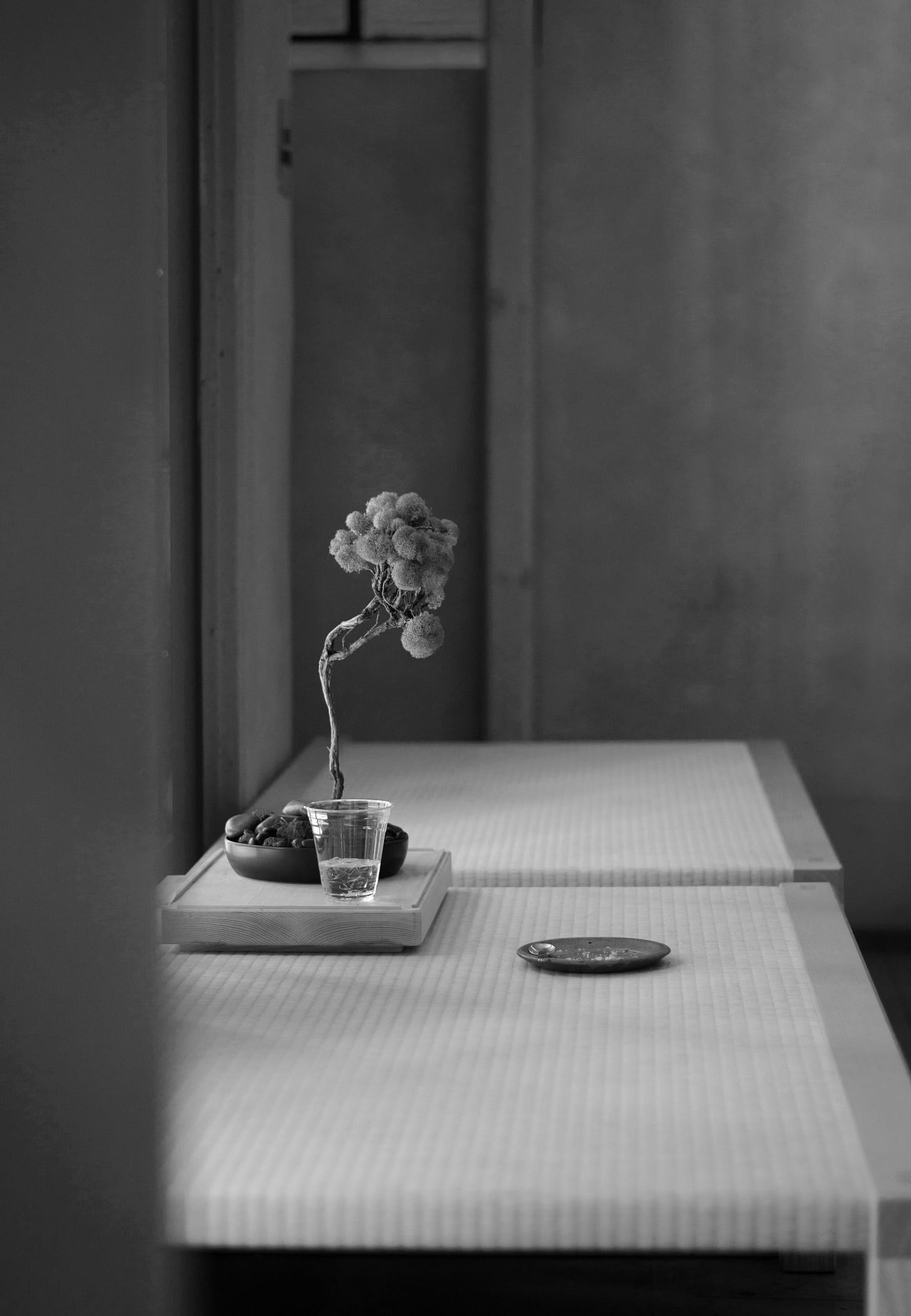
"In reality there is nothing in the universe which is completely perfect or completely still; it is only in the minds of men that such concepts exist." ~Alan Watts
Wabi-Sabi is the art of seeing beauty in imperfection. It is a Japanese technique that teaches you to appreciate the beauty of unfinished, imperfect and impermanent in yourself, your life and the world. Wabi-Sabi is honoring the old rusty and weathered elements and realizing the greatness that lies in the natural cycle of life and death. Wabi-Sabi refers to anything but the seemingly perfect mass-produced machinery-designed goods. This concept is based on naturalness and simplicity, rawness and authenticity. To discover Wabi-Sabi is to see beauty in something that may appear broken or flawed, it is to connect to the essence of things and people who humbly wear their blemishes and imperfections in such a way that conjures refinement.
Wabi-Sabi reminds us of our transience: no earthy element can escape the cycle of growth and decay, and we should celebrate each stage in ourselves and others. Throughout the course of your life, your worth and shine remain the same, only to be alchemized from time to time by circulating energy. This is how wounds and scars appear –apparent injuries which, instead of dimming your beauty, enrich it with wisdom and delicacy.
The terms "wabi" and "sabi" can't be directly translated. Over time, the two have formed a new word "Wabi-Sabi" that defines an aesthetic approach towards life. Wabi denotes something pure and silent, a rustic beauty of manmade or nature created elements. Objects with a small flaw become unique, and they should be seen as such. Sabi refers to the expanding beauty of objects that age and the appreciation of life's cycles. Individuals and objects wear their signs of seniority and evolution with grace and lack of pretension. Sheer damage doesn't imply an end, but a reemergence.
As I begun to apply Wabi-Sabi in my life, I discovered that my wounds were marks of aliveness, not proof of mistakes. I found out that my inner bruises were, in fact, softening the sharp edges of misconception. Instead of rejecting the signs of pain, I addressed them; and light poured through the cracks I spent so much energy trying to repair and hide.
Applying Wabi-Sabi in relation to yourself lessens the mind's standard for perfection, thus eases your pain. You are not broken, and you never were. As you embrace your faults, you learn to see yourself deeply. And seeing yourself is the first step to recognizing the truth in others.
Back in the day, when I spent time with a friend couple, Marc, and Jen, I heard numerous stories about their rocky path. This was the love story of two headstrong individuals who worked through hardships, judgments, and disease. I often used to ask them: "How did you manage to stay together?" They sighed and explained to me, over and over again, that their marriage needed constant nourishment and presence. They have learned to appreciate each other and slowly built their life together. They received each other as they were and realized that expectations only damaged their connection. When Marc was sick and doctors told him he was going to die, his children, Jen's children, and Jen herself begged him not to die. Instead of receiving help from them, Marc had to be strong enough and give hope to his family. He regained his health and loved his wife even more as he saw Jen in her most profound sorrow. He accepted her response to his illness and honored her rawness. They grew stronger. Rather than pulling them apart, adversity brought them closer. Both confessed that they had made mistakes and sometimes they hurt each other. As years went by, both of them crumbled and then arose. They learned how to see each other through the eyes of their partner; they found their way to give without feeling depleted. Jen and Marc created a loving routine for themselves. They addressed their needs together, held space for each other, and found a way to blend their intentions for a fruitful life together. They knew they were not perfect, but out of this imperfection, kindness and compassion originated.
Sam King said: "We come to love, not by finding a perfect person, but by learning to love an imperfect person perfectly."
Knowing and accepting your flaws is what being in the flow is about. Love yourself for your imperfections. Waiting to become perfect to spread your wings and fly is what is keeping you from rejoicing right now. Look within your heart, and you will find perfection and beauty there. But the foundation of that beauty is what you have gone through.
What does Wabi-Sabi awaken in you?
Take a moment and think about the things that you cannot accept in yourself or your loved one. You can make a list of things that you perceive as being wrong. After you finish, ask yourself: Are those things essential? What do these things try to tell me about myself?
Remind yourself of Wabi-Sabi anytime you feel broken or disappointed. Know that there is pure gold within your being; know that everything that happened to you had led you to this moment right now. And in perfectly loving yourself, there are no imperfections.
Thank you for reading this week’s The Art of Flow. If you enjoy reading, please press ❤️ to like and support my work.
With love,
Yoli





Lovely idea to apply the concept of wabi-sabi to how we view ourselves and others. I really enjoyed this piece. Thank you 🙏 💙